From hospitals and clinics to specialized treatment centers and medical offices, the physical spaces where care is delivered play a vital role in ensuring efficient, cost-effective, and patient-centric services. One critical aspect that impacts the operations and bottom line of healthcare facilities is real estate.
The healthcare real estate landscape has unique requirements that differentiate it from other commercial real estate sectors. Regulatory compliance, specialized equipment needs, accessibility considerations, and stringent hygiene standards are just a few factors that must be carefully addressed. Additionally, the rising costs associated with delivering healthcare services have placed increased pressure on facility operators to optimize their real estate portfolios and manage operating expenses effectively. These case studies do a great job highlighting how specific healthcare organizations successfully implemented strategies to reduce their operating costs and optimize their real estate.
As a healthcare facility operator, managing operating expenses is crucial for long-term sustainability and profitability. Here are some practical strategies to help optimize costs without compromising patient care or service quality:
1. Space Optimization
Effective space utilization is paramount for healthcare facilities to control operating costs and ensure efficient delivery of services. Evaluating your current space utilization is the first step towards space optimization. Conduct a thorough assessment to identify areas that are underutilized, inefficient, or redundant. This may involve analyzing patient flow, staff workflows, equipment placement, and storage needs. By pinpointing underperforming spaces, you can make informed decisions about consolidating operations into a more compact footprint, leading to significant cost savings on rent, utilities, and maintenance expenses.
If your current facility is no longer meeting your needs due to growth, changing operational requirements, or outdated infrastructure, it may be time to explore the option of relocating to a more efficient and cost-effective property. Work closely with a knowledgeable real estate partner who understands the unique demands of healthcare facilities. They can assist you in finding a space that aligns with your operational requirements, accommodates future growth, and minimizes unnecessary expenses associated with inefficient layouts or oversized spaces.
Proper space planning and design play a crucial role in optimizing space utilization within your healthcare facility. Consider implementing flexible layouts that can adapt to changing needs, such as modular examination rooms or movable partitions. Encourage shared workspaces and multi-purpose rooms to maximize the functionality of your facility while minimizing wasted square footage. Collaborate with experienced designers and architects who specialize in healthcare environments to create efficient and patient-centric spaces that enhance workflow, improve accessibility, and promote a healing atmosphere. This article from Becker’s Hospital Review discusses how various hospitals and health systems implemented energy efficiency initiatives to significantly reduce their operating expenses related to energy costs.
By adopting a strategic approach to space optimization, you can not only reduce operating costs but also enhance the overall quality of care and patient experience. Regularly reassess your space needs and remain open to innovative solutions that optimize space utilization, allowing you to allocate resources more effectively towards your core mission of delivering exceptional healthcare services.
2. Energy Efficiency
Implementing energy-saving measures can have a substantial impact on your operating expenses. Start by conducting an energy audit to identify areas of inefficiency and potential areas for improvement. This may include upgrading to energy-efficient equipment, optimizing HVAC systems, and incorporating renewable energy sources.
Investing in energy-efficient lighting, such as LED bulbs, can significantly reduce energy consumption and associated costs. Additionally, consider implementing building automation systems to monitor and control energy usage more effectively.
Encouraging energy-conscious behavior among staff and patients can also contribute to energy savings. Implement policies and awareness campaigns to promote practices such as turning off lights and equipment when not in use, and maintaining appropriate temperature settings.
3. Lease Negotiations
Partnering with an experienced commercial real estate firm can be invaluable when negotiating favorable lease terms for your healthcare facility. Look for a partner with a deep understanding of the healthcare real estate market and a track record of securing cost-effective agreements tailored to the unique needs of medical facilities.
Skilled negotiators can help you secure competitive rental rates, extended lease durations, and maximize tenant improvement allowances. Favorable tenant improvement allowances enable you to customize the space according to your specific requirements, from installing specialized medical equipment to creating patient-friendly amenities, without incurring excessive upfront costs.
Additionally, a knowledgeable real estate partner can identify potential concessions and incentives, ensuring that you benefit from flexible lease terms that accommodate your operational needs while minimizing costs. These blog posts written by industry experts, such as healthcare real estate consultants, facility managers, or healthcare executives, can offer complementary valuable insights and insights.
In this dynamic environment, partnering with a knowledgeable and experienced commercial real estate firm that specializes in healthcare facilities can be invaluable. These professionals possess a deep understanding of the industry’s nuances, enabling them to provide tailored solutions that address the specific needs of healthcare providers. From space optimization and energy efficiency initiatives to favorable lease negotiations and proactive maintenance strategies, the right real estate partner can be instrumental in minimizing operational costs while ensuring compliance and delivering exceptional patient experiences
RCR: Your Trusted Partner in Healthcare Real Estate
At RCR, we specialize in providing tailored solutions to address the unique challenges faced by healthcare organizations. With decades of experience in the commercial real estate industry and a proven track record of over 238 deals completed across 26 states, totaling over 4 million square feet in the last two years, we have the expertise to navigate the complexities of the healthcare real estate market.
Our clients have commended us for our exceptional customer service, creativity, and ability to deliver results that exceed their expectations. We pride ourselves on being responsive, encouraging our people to be authentic, and challenging our team to think creatively.
Whether you’re seeking space optimization, energy efficiency solutions, or favorable lease negotiations, RCR is your trusted partner in managing operating expenses for your healthcare facility. Contact us today to learn more about how we can help you achieve long-term success while minimizing costs.









